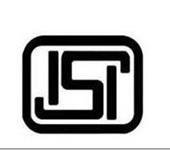
India certification
Since the BIS predecessor, the Indian Standards Association in 1955 since the beginning of product certification, product certification so far in India has 50 years of history. At present, BIS has issued more than 30,000 copies of product certification, covering agricultural products, textiles, electronics and almost every industrial area.
In principle, the product certification in India, the principle of voluntary certification, designed to provide end-consumers with quality assurance, safe and reliable products. However, given the public health and safety, national security, infrastructure needs and mass consumption, the Indian government has imposed compulsory certification on about 90 specific products such as milk powder, cement, steel pipes, hydraulic furnaces, Multi-purpose dry batteries, medical X-ray diagnostic equipment, plastic bottles, bottled mineral water, bottled water, steel and steel products. For products that fall within the scope of mandatory certification products, manufacturers or importers must first apply to the BIS for import product certification, the customs certificate based on the goods to release.
India's product certification is basically the principle of voluntary certification, designed to provide end-consumers with quality assurance, safe and reliable products. BIS product certification is based on ISO Guide28, through the factory quality management system for the first time testing and assessment, after the factory quality management system certification supervision, and the factory and the market to take samples to determine whether the product is consistent with the Indian standard.
Product Range
Basic coverage of all industrial products:
1. textile;
2. Chemicals and pesticides
3. Cement and concrete;
4. Metal products and imitation of metal products;
5. Equipment;
6. Electrical and optical equipment;
7. Automotive accessories;
8. Agricultural products, food, beverages and tobacco;
9. Leather product;
10. Wood products;
11. Paper and pulp products;
12. Testing equipment;
13. Building materials;
14. Pumping, irrigation, drainage and sewage installations.
For electrical and electronic products, mandatory control list is as follows:
Include: electric iron, electric stove, electric heater, switch, incandescent lamp, wire and cable, circuit breaker, AC meter, etc.
application process
1. Application: Waltek submits an application to BIS.
2. Records: BIS accepts the application, reviews the application documents and information, if the procedures are complete, the application will be recorded.
3. Initial factory inspection: BIS will appoint a delegation of not more than two officers to the factory inspection. Applicants are required to bear the official mission to the factory inspection of travel, visa fees and other expenses and the corresponding inspection costs.
4. Test: Applicant foster to BIS designated laboratory test.
5. Issuance of a certificate: If the initial inspection and test results are satisfactory, and the applicant agrees to perform the BIS-approved inspection test program after certification and pay the BIS identification fee, the applicant may be issued with a certificate. Certificate valid for 1 year. After the certificate is granted, the licensor pays the logo fee and the annual fee for the certificate.
6. Post-Certification Surveillance: BIS monitors the quality of its certified products by conducting regular audits of inspectors and conducting surprise inspections and testing of samples from factories and markets. In the case of periodic inspections, the samples taken from the plant or market are inspected and the results of the independent tests meet the requirements and the certificate can be renewed. The certifier updates the application to the BIS by submitting a nomination form. The renewal fee is 500 Rupees. Licensed also need to bear the cost of sample testing.
Certification mark






